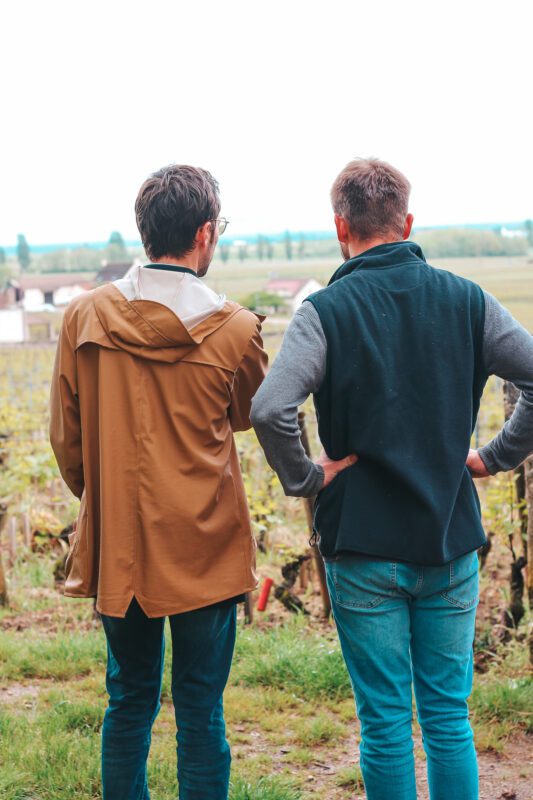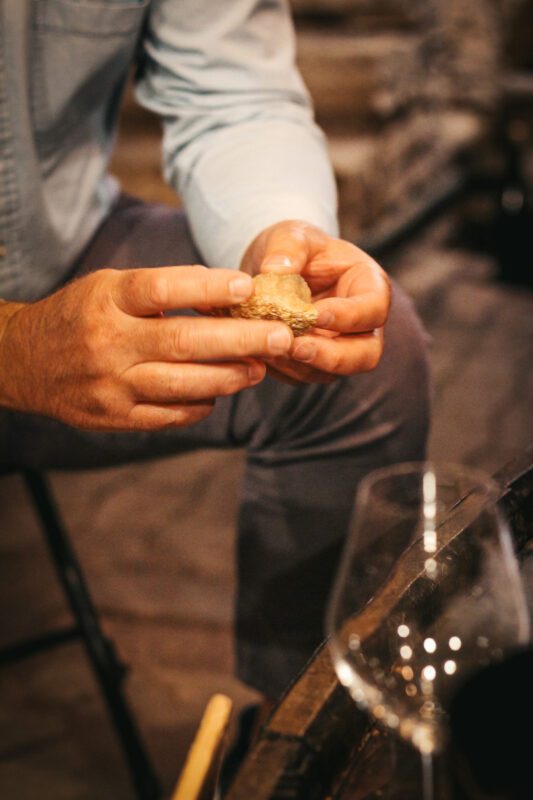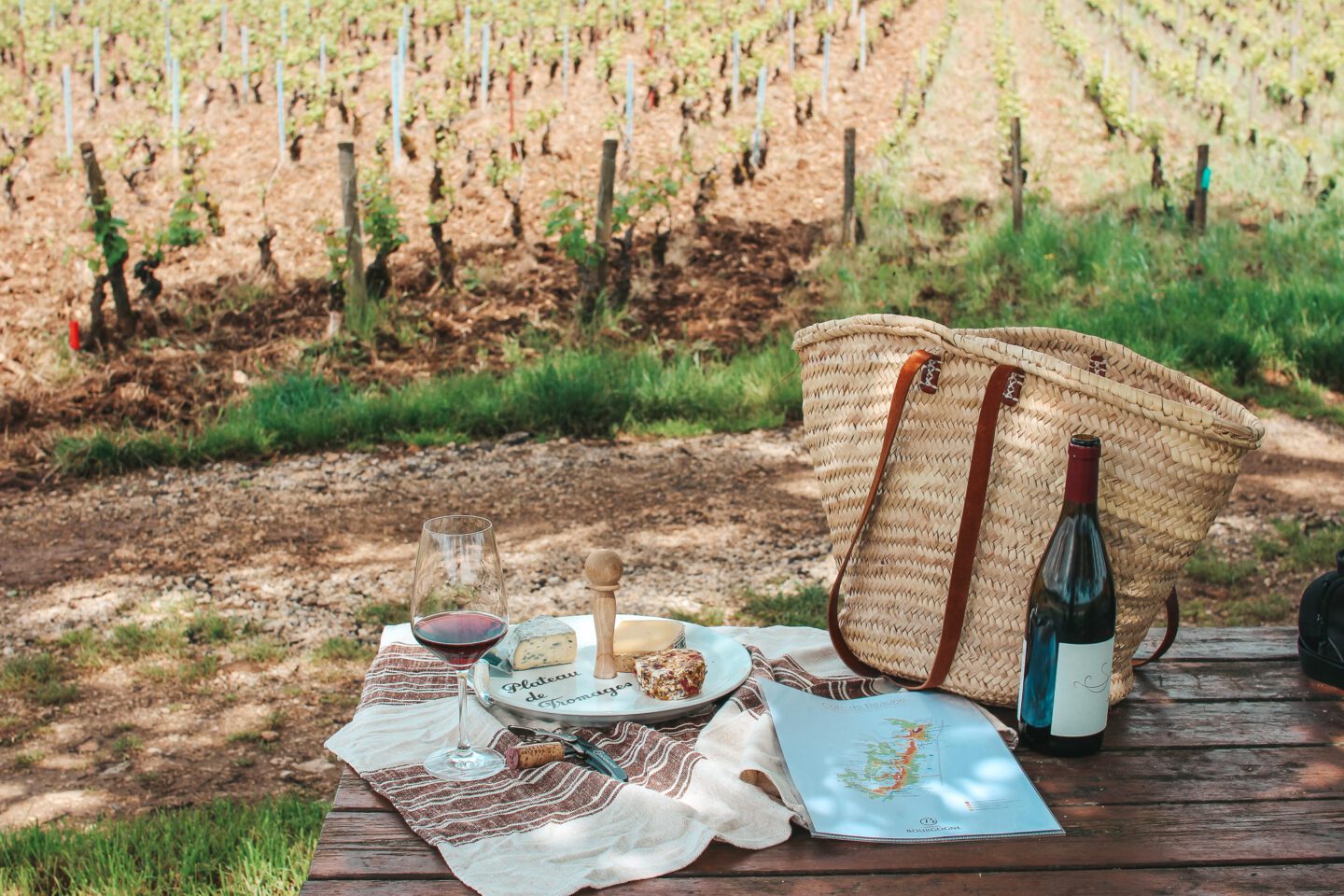
“We can’t just show up?” one of my clients asked, surprised when I told them how wine tourism works in Burgundy. They had imagined biking through the vineyards, stopping at wineries along the way for spontaneous tastings. I had to break it to them: no, that’s not how it works here. In fact, showing up unannounced might not only leave you disappointed, but it could perceived as genuinely rude. Most domaines are small, family-run operations, and they are often busy in the cellar or the vineyard, not waiting by the door for unexpected visitors.
Wine tourism in France isn’t the same as in the USA, and that’s exactly what makes it so special. Understanding and accepting these differences is the first step to experiencing it fully. Part of traveling, or living in a new country, means confronting situations that don’t align with your expectations. But in France, these differences aren’t obstacles; they’re opportunities to connect more deeply with the culture, the land, and even yourself.
How Wine Tourism in France Differs
In the U.S., wine tourism often revolves around convenience and accessibility because it has to. Napa Valley, for example, is as much about hospitality as it is about wine. Wineries have structured tourism programs, wine clubs, and extended hours, catering to diverse consumer needs. These programs are often a necessity for navigating multiple sales channels, including the three-tier distribution system. Wine clubs help wineries establish ongoing customer relationships and direct-to-consumer sales.
In France, the landscape is quite different. While larger merchants in Burgundy, Champagne houses, and some châteaux in Bordeaux have well-established tourism programs, the majority of French wine production comes from small, family-run wineries. These estates, often passed down through generations, operate at their own pace. Winemakers focus almost entirely on production, with clearly defined roles, leaving little time for tourism. Visits typically require appointments—not out of exclusivity, but because the winemakers are busy farming, managing the cellar, and running the business.
Yes, there are exceptions, as the younger generation is starting to embrace more dynamic approaches, including wine tourism. However, this remains the minority, with tradition and production still taking precedence for most small domains.
Many producers I’ve worked with either don’t speak English or prefer not to, it can be challenging, especially when answering technical questions about their work. Have you ever tried to explain what you do for a living in another language? It’s not easy! Wine professionals with a higher level of English proficiency often work in marketing or export roles, or they come from families where education and travel were prioritized and accessible, something that’s not always the case, especially in rural agricultural areas. And yes, grape growing is agriculture (viticulture). Larger estates, with the resources and infrastructure to employ dedicated tourism staff, are more likely to provide polished visitor programs.


Things to Consider When Planning a Wine Trip Through France
Timing is everything when planning your wine trip in France. Visiting during harvest might be impossible, as winemakers and their teams are fully immersed in the fields or the cellar. Sundays are typically reserved for family, and many small domaines simply don’t operate on the same constant-accessibility model as wineries in the U.S. French wine estates prioritize tradition and balance, and this can mean limited availability for visitors.
For travelers coming from a culture driven by sales and convenience, this difference can be hard to grasp. In the U.S., many wineries are first-generation businesses, often under financial pressure to “hustle” and grow rapidly. By contrast, French wineries are frequently multi-generational family legacies, with a focus on heritage, sustainability, and stability rather than expansion. Neither approach is inherently better, they’re just different. Understanding this cultural context can help you appreciate the systems at work.
That said, I want to tread lightly on the romanticized idea of France being entirely about “living in the moment” or “being present.” While this perspective exists, there are struggles here too. Changing careers, for instance, or breaking out of traditional systems can be extremely challenging, and the weight of longstanding norms can feel stifling for some. France, like any place, has its complexities—it’s about understanding both the beauty and the challenges of its way of life.
Tourists, Travelers, and Pilgrims
I recently listened to a podcast featuring an interview with Rick Steves, often considered an icon for making European travel accessible to everyday American audiences. I’ll admit, I’ve side-eyed people clutching his travel guides in the past, but over the years, my perspective has shifted. Maybe it’s because I’ve evolved myself. Now, working more in wine tourism than the education and marketing of wine, I’ve circled back to appreciate his impact. I think Rick Steves deserves credit for opening the door to travel for so many people.
In this interview, he described three types of people who explore the world: tourists, travelers, and pilgrims. Tourists want to see it all, often following checklists to ensure they don’t miss a single landmark. Travelers aim for immersion, seeking to connect with a place rather than just ticking boxes. Pilgrims, however, go even further—they seek transformation. For them, the journey is about finding a deeper connection, one that changes how they see the world.
I like to think I cater to travelers and pilgrims. My role is to guide you in understanding the culture here, helping you approach the experience with empathy, patience, and preparation. France doesn’t cater to a “wing it” mindset very well. It requires you to slow down, plan ahead, and approach your visit with intention and an open mind. Contact me to learn more about wine experiences and travel planning in France.
